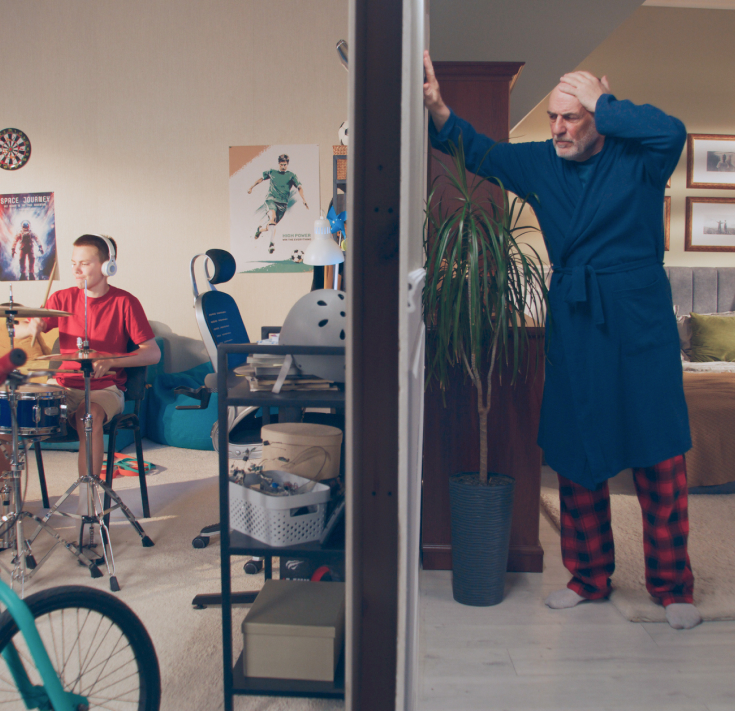Anti-Social Behaviour – Policy Statement
Here we aim to set out clear guidelines on how we define the different types of Anti-Social Behaviour (ASB), and what we can and can’t do to help resolve them, thereby people who report ASB know exactly how we will can deal with.
ASB is “behaviour likely to cause alarm, harassment or distress to members of the public, not behavior that causes upset to the members of the same household”.
Different types of ASB need to be dealt with in very different ways, and not everyone reacts in the same way to the same behaviours. It is therefore important for us to separate breaches of a tenancy or lease from nuisance behaviour, as this helps define the likely steps we may take.
Where a property is rented it is the landlord, not Ringley that holds the power to resolve most types of nuisance, we will always take reports seriously and take your feelings into account; and we will always be very clear about next steps and who it is that needs to take them. In some circumstances, we may give you advice on what you can do to improve the situation for yourself.
| Catergory | Examples might include things like: | Things Ringley might do include: |
|---|---|---|
| Nuisance Behaviour (Persistent and/or deliberate nuisance behaviour may also be a tenancy breach) | Low level noise nuisance: raised voices; noisy equipment at unsociable hours, occasional noise, e.g. playing music. |
|
| Neighbour disputes, arguments | ||
| Graffiti; Rubbish; Fly Tipping/litter; Overgrown gardens; fumes/smoke |
||
| Nuisance Animals, Dog Fowling | ||
| Abandoned Vehicles; Parking illegally | ||
| Inappropriate places for sport/activities | ||
| Drug and alcohol misuse/abuse | ||
| Tenancy Breach |
|
|
| Crime |
|
|
Measures to prevent Anti-social behaviour
Naturally, the most effective way to handle ASB is to try to prevent it from occurring in the first place. We encourage landlords to do this by:
- Setting clear standards of behaviour in the tenancy agreement and reinforce them at sign-up and at settling-in visits.
- using probationary tenancies where possible and keep in close contact in the early stages of the tenancy, particularly if we suspect there may be issues which could lead to problems.
- taking a zero-tolerance approach to environmental problems, and working with us to provide urgent response times in problem areas to prevent problems escalating.
What we will do when we receive a report of ASB or nuisance
If you report an incident to us, we need to know the details so that we can pass this onto the landlord or lessee who we will encourage to take swift action to stop problems escalating. We cannot judge how a problem affects you but will take down details of what you tell us.
We will encourage you that we cannot take further action UNLESS we are provided with at least one of the following:
- the police report number you obtained when calling 101
- the Council’s 24 hour noise report number
- evidence of the noise, to record the noise you can download this noise app from
for iphones https://itunes.apple.com/gb/app/the-noise-app/id926445612?mt=8
for androids https://play.google.com/store/apps/details?id=com.rhe.noiseapp&hl=en_GB
We will be happy to share a copy of our report with you, you are welcome to visit our office to make a statement if you prefer.
We’ll let you know what steps we’ll take next and give a clear view on what might happen next, given the nature of the incident and let you know how long things may take
We will encourage the responsible party to liaise with you and provide you with an update on next steps. If there is no further action we can take (other than discussing the issues with the people involved) we will tell you so, so that both you and Ringley are clear about possible outcomes.
If evidence suggests that the problem is a tenancy breach we will advise the landlord and direct them that they should consider ending the tenancy. In extreme circumstances and if the evidence that you and third parties have put together is sufficient, if our Client so engages us to do so we may be able to bring about an action to determine a breach of lease in the First Tier Tribunal which is the first step in seeking to end the property owner’s lease.
































